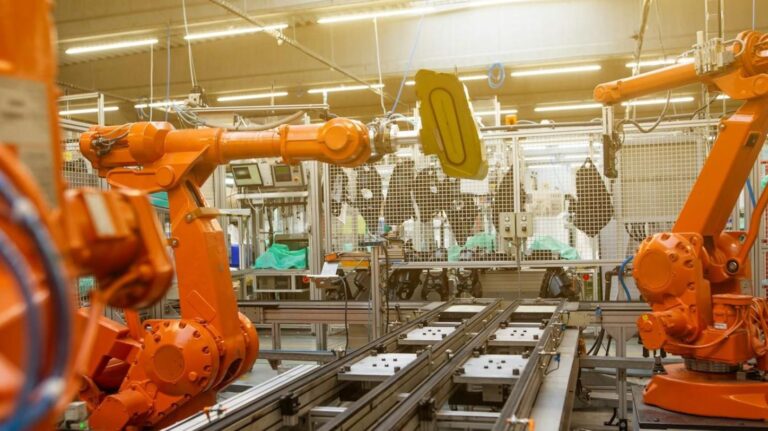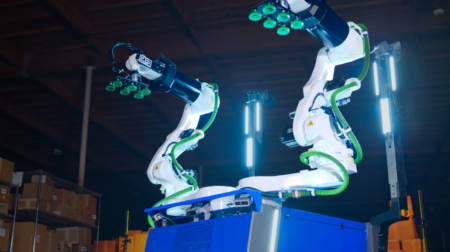A new report released by Make UK, in partnership with Autodesk, reveals that British manufacturers are planning to significantly ramp up their investment in artificial intelligence (AI) over the next year.
However, despite growing adoption of AI technologies, key barriers to widespread implementation remain.
Key findings from the Future Factories Powered by AI report highlight that while two-thirds of UK manufacturers are currently utilising AI in some capacity, only a small fraction—16%—report being fully knowledgeable about the technology’s potential. As a result, only 36% of companies are incorporating AI into their manufacturing processes.
The findings are based on a survey of 151 companies conducted in September 2024.
The report highlights that energy optimisation is the primary use of AI, with 90% of businesses deploying AI to enhance energy consumption efficiency. In addition, AI is being increasingly applied to environmental goals, with 25% of companies using the technology to support their decarbonisation efforts.
READ MORE: MIT and Mecalux launch collaborative project to drive logistics innovation
More than 90% of those leveraging AI for sustainability are focusing on energy efficiency, while significant portions also apply it to reduce waste (64%) and improve resource efficiency (57%).
Despite these strides, AI’s integration into manufacturing processes, especially in robotics, remains relatively low. The use of robotics in UK manufacturing is significantly below global standards, with only 16% of UK manufacturers operating robotic systems.
This stands in stark contrast to other European countries like France and Italy, which are more actively adopting automation, with the UK currently ranking 24th globally for robotics use, operating just 111 robots per 10,000 employees.
Looking ahead, the report notes that 75% of manufacturers plan to increase their AI investments over the next 12 months, signaling optimism about the potential of AI to boost productivity and efficiency. Notable benefits cited by manufacturers include enhanced operational efficiency (69%), improved productivity (61%), and the automation of routine tasks (46%).
However, smaller businesses face significant barriers to AI adoption. The report found that large companies (those employing over 250 people) are more than twice as likely to use AI as SMEs (71% vs. 28%). SMEs are hindered by factors such as a lack of understanding of AI applications and insufficient access to technical expertise. Consequently, many smaller manufacturers are missing out on opportunities for increased profitability and greater work capacity that AI adoption has enabled for larger firms.
To address these challenges, Make UK calls for greater support from the government and the industry to lower barriers for SMEs. Initiatives such as the nationwide rollout of the Made Smarter programme and increased funding for the Alan Turing Institute are steps in the right direction.
However, further action is needed to ensure that smaller manufacturers can access the tools and knowledge required to compete in an increasingly AI-driven industrial landscape.
Despite the challenges, the report provides a hopeful outlook, noting that a growing number of manufacturers are realizing the value of AI for both operational efficiency and sustainability. With continued investment and policy support, the UK has the potential to become a global leader in AI-driven manufacturing.
Join more than 11,000 industry leaders at Robotics and Automation Exhibition on 25-26 March 2025. Explore cutting-edge technologies, connect with peers and discover the latest innovations shaping the future of manufacturing, engineering and logistics. Register now to secure your place at this premier event!









